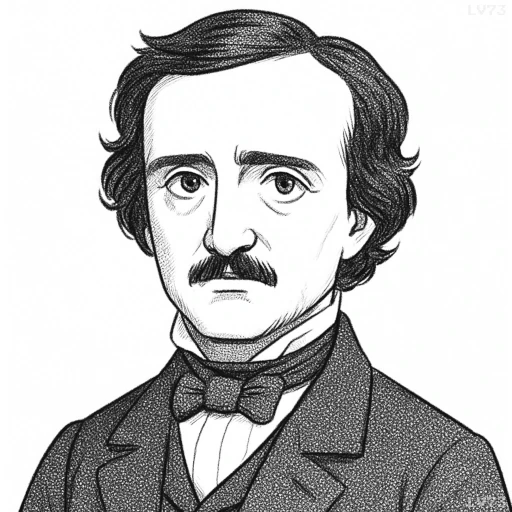“Of puns it has been said that those who most dislike them are those who are least able to utter them.”

- January 19, 1809 – October 7, 1849
- American
- Novelist, poet, critic
table of contents
Quote
“Of puns it has been said that those who most dislike them are those who are least able to utter them.”
Explanation
In this quote, Edgar Allan Poe humorously observes that those who dislike puns the most are often the very people who are incapable of making them themselves. The quote plays on the idea that people who criticize puns or find them tedious do so out of a kind of insecurity—they are likely unable to craft such clever wordplay, which requires both linguistic agility and a sense of humor. Poe’s observation is both a critique and a lighthearted commentary on how people’s attitudes toward language and humor can often stem from their own limitations or frustrations.
Poe’s playful jab at the disdain for puns reflects his wit and the common intellectual tension between linguistic cleverness and intellectual superiority. Puns, often regarded as the lowest form of wordplay, can be seen by some as lacking sophistication or depth, which may lead those who pride themselves on their intellectual abilities to dismiss them. Poe’s insight suggests that this dismissal is often rooted in jealousy or a lack of creative linguistic skill, which he humorously exposes as a form of self-consciousness.
In modern times, this quote continues to be relevant in the context of how humor is perceived and valued. Puns are often regarded as cheap or overused, yet they remain a staple of everyday communication, especially in social media, advertising, or casual conversation. Poe’s words encourage a more inclusive view of humor, where even the simplest forms of wordplay, like puns, are worthy of appreciation. His quote also invites us to consider how our own preferences in humor can sometimes reflect personal biases or insecurities, especially when it comes to forms of comedy that require a playful mastery of language.
Would you like to share your impressions or related stories about this quote in the comments section?




